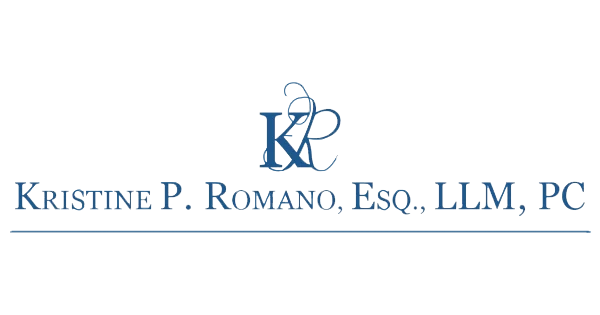MassHealth Eligibility & Planning in Massachusetts: The Complete Guide for Families
What Every Massachusetts Family Needs to Know About MassHealth and Asset Protection
The cost of nursing home and long-term care services in Massachusetts is a major concern for many families. It often raises difficult questions: Will we lose our home? How can we protect savings? What does MassHealth cover?
The truth is, MassHealth (the Massachusetts Medicaid program) has complex rules about eligibility and asset protection. Some assets may be exempt, while others could affect whether you qualify for benefits. This is where Medicaid planning comes in. By learning the rules early, families can make informed choices about protecting what matters most.
What Counts Toward MassHealth Eligibility?
When applying for long-term care benefits, MassHealth reviews both income and assets. Certain property and savings may count toward eligibility, while others may be treated as “non-countable” or exempt under specific conditions.
The Primary Residence
A person’s primary home is often treated differently from other assets. It may be exempt if:
- A spouse, minor child, or disabled child continues to live there
- The applicant expresses an intent to return home
However, MassHealth also places a limit on the amount of home equity that can be exempt. If the equity value is above the state’s cap, it may affect eligibility.
Permissible Transfers
Some transfers of property are allowed without penalty, including:
- To a spouse
- To a child under 21, or a child who is blind or permanently disabled
- In certain circumstances, to an adult “caregiver child” who lived in the home for at least two years immediately before the parent entered a nursing home and provided care that delayed nursing home placement
These exceptions are strictly defined, and MassHealth requires proof (such as medical documentation or legal verification) before recognizing them.
The Five-Year Look-Back Rule
One of the most important aspects of Medicaid planning is the five-year look-back.
When you apply for MassHealth long-term care coverage, the state reviews all transfers of assets made in the past five years. If assets were given away or sold for less than fair market value during that period, it could trigger a penalty period of ineligibility.
This rule is designed to prevent individuals from transferring assets into their name shortly before applying. Families sometimes assume that MassHealth will not discover certain transfers, but the program has broad access to financial records and routinely reviews them.
Because of this, planning before the five-year window is key.
Using Trusts in Medicaid Planning
Trusts can be an important part of Medicaid planning, but the details matter greatly.
Irrevocable Trusts
In Massachusetts, an irrevocable trust may help protect certain assets from being counted by MassHealth if it is properly drafted, funded well before applying, and passes MassHealth’s “any circumstances” test (which looks at whether the applicant or spouse could benefit from the trust in any way).
If done correctly, an irrevocable trust can:
- Preserve the family home
- Protect retirement savings and investments
- Allow assets to pass to children or grandchildren in the future
If not set up carefully, however, the assets in the trust may still be treated as countable by MassHealth.
Timing Is Critical
Trust planning typically needs to be completed at least five years before applying for MassHealth. This makes it especially important to start early rather than waiting until care is needed.
What If Planning Hasn’t Been Done?
If nursing home care is needed immediately, some strategies may still help protect a portion of assets. These could include:
- Purchasing a Medicaid-compliant annuity
- Establishing certain types of trusts, such as pooled trusts (recently restored in Massachusetts for seniors and people with disabilities)
- Using allowable spend-downs for care or exempt expenses
These options are highly fact-specific, and results depend on meeting strict MassHealth requirements. Families in this situation should seek professional guidance quickly to avoid mistakes that could delay eligibility.
Why Professional Guidance Matters
MassHealth rules are detailed and sometimes counterintuitive. For example, a transfer that seems simple, like adding a child’s name to a deed, can have serious unintended consequences.
Likewise, a trust drafted incorrectly may be considered an available asset, despite the family’s intent.
Because every family’s needs and financial picture are different, there is no “one-size-fits-all” Medicaid planning strategy. The safest approach is to consult with an elder law attorney familiar with MassHealth regulations.
At Kristine Romano Law, families often report feeling relieved after finally having the rules explained in plain language. Our goal is to create a supportive environment where you can understand your options, ask questions freely, and build a plan that reflects your priorities.
Key Takeaways
- Medicaid planning in Massachusetts (through MassHealth) helps families prepare for long-term care costs while protecting essential assets.
- The primary residence may be exempt, but rules on home equity and permissible transfers must be followed carefully.
- MassHealth applies a five-year look-back to review asset transfers, and penalties may apply for transfers made during that period.
- Trusts, when structured properly and funded early, can be powerful planning tools—but details and timing are critical.
- Even if planning hasn’t been done in advance, options like annuities, pooled trusts, or limited spend-downs may provide partial protection.
- Because the rules are complex, consulting an elder law attorney is essential to avoid costly mistakes.
Ready to Talk About Protecting Your Family?
Understanding the rules is an important first step, but the real value comes from applying them to your family’s unique circumstances. Medicaid planning is never one-size-fits-all what works for one household may not be the best approach for another. At Kristine Romano Law, we take the time to listen, explain options clearly, and walk with you through each step of the process. Our goal is to help you feel confident about your choices and supported in your planning. Schedule a consultation today.
References: Massachusetts.gov – Eligibility Operations Memo: Countability of Irrevocable Trusts and Fletcher Tilton – Understanding the MassHealth Five-Year Look-Back and Heritage Law Center – Permissible Transfers of Real Estate under MassHealth and Senior Solutions – Pooled Trusts Restored in Massachusetts



